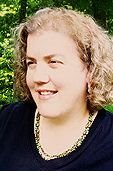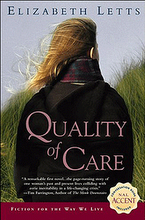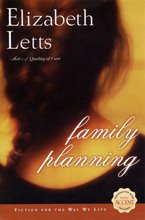
1982
I was in college. I wrote a story called Keeping House. It was about a woman who refused to get out of bed, and so her house was slowly overtaken by dust, until she was eventually suffocated. The slowest of all slow deaths. I submitted it to the college literary magazines where it was roundly rejected. That year, one college undergraduate published a story in The New Yorker, and we ran into Jodie Foster, a classmate, at every turn. We knew how to recognize talent-- and the lack of it, of course.
At that time, I was taking a class that I had chosen primarily for its high "gut" potential. The class was called "The James Family Project" and ostensibly we were to learn the art of television screenwriting all while learning about the illustrious family of Henry and William James.
I chose the class because I was able to fulfill both an English and a History requirement, and because it involved creative writing, and because it looked easy.
There were six students in the class, five boys, and me. The professor was an out-of-shape guy in a tweed jacket with wild hair threaded with gray and a souped up vocabulary-- to my youthful eyes he was the essence of a failure posing as a know-it-all.
He said that he was writing a PBS special about the James family, and he hinted around that he had all kinds of connections and that if we were "good enough" we might be able to get a foot in the door. I suspected that he was frankly hoping that our work would be good enough to steal.
He was bombastic and full of himself. The boys in the class were pumped up and full of hot air. I was painfully shy and sat silent most of the time but there was something about this man that seemed painfully familiar to me-- even then, I had an awareness that the writer's road was not an easy one, and that he must have once had more glorious dreams than to be pacing that basement classroom trapped with the six of us.
Still and all, I found myself becoming obsessed with the sister of William and Henry James--Alice. A brilliant woman in her own right, she had spent most of her adulthood as a neurasthenic, confined to her bed bitterly complaining of her ills, while her two brothers, the psychologist and the novelist, went on to become some of the most illustrious men of the nineteenth century. She reminded me of the woman in my story who took to her bed and refused to get up.
The secret truth of my life was that I was having a terrible time. One of my two roommates was falling apart, and I myself was barely holding my head above water, but in a quiet way that no one seemed to notice. I was not doing much of my work. I was too shy to participate in class.
Then, partway through the semester, John Hinckley shot Ronald Reagan, and gave as the motive his love for Jodie Foster. There were news reporters everywhere, and people trying to interview us--do you know her? How does she dress? Who are her friends? Jodie Foster went into hiding and was about to give her first press conference in the same building where my class was going to meet.
There were armed gaurds at the entrance to the building, and when I tried to pass, they demanded my teacher's name. John Hinckley, Jodie Foster, Ronald Reagan. These were names on the nightly news. Not my bag-of-hot-air, middle-aged, slightly overweight professor. What was his name? If I had known it at some point, by then it had slipped away.
"I...uh...I....I..don't know..." I said.
I felt the security officers' arms encircle mine, and my feet were just lifting up off the ground.
Another student bailed me out just in time.
David Milch, you idiot.
Oh yeah.
David Milch, David Milch. I repeated it to myself so I wouldn't forget it.
At the end of the semester, I had to hand in the one assignment, a television screenplay about Alice James and then meet with the professor in his office.
"So," he said, leaning forward from behind the big desk and looking at me. "You never say a word, sometimes you don't come to class..."
He had my twenty-page screenplay sitting on the desk between us, my heart was pounding and my mouth was dry.
I nodded.
"Why didn't you come to class?"
How does one answer a question like that? How did I explain about the fact that I liked to go up to the seventh floor library stacks and write poetry on the carrells and stare out the windows? That I read lots of novels, but never the ones that were assigned in class? That I felt like the lady in my story, the one who never wanted to get out of bed?
"Are you passing your other classes?"
"Oh sure," I said. "Everything is perfectly fine."
He picked up my papers from his desk and looked at me. "There is no doubt that you have talent. But, what I want to know if you are okay. I want to know if you are doing okay in your other classes?"
I did a quick run through in my mind... at the end of that disastrous semester I would be on academic probation.
"Fine," I said. "Everything is fine."
I didn't tell him then but it made no small impression on me that he had cared enough to ask, and that he had noticed me, Alice James, silent, small and tamped down, among the boisterous others.
I don't think it was more than two or three years later that I saw his face on the cover of Newsweek Magazine.
David Milch had gotten famous as a TV writer and director of some of the hottest shows on TV, and in the article, it mentioned that there had been a time when he had been so down on his luck that he had been living in his office at Yale, right during that time that he was my teacher.
I'll always be one of his biggest fans-- for introducing me to Alice James, and for asking me how I was doing when no one else did.
In the youthful arrogance of twenty, I had mistaken him for washed-up when he had not even gotten started.
Success is impossible to predict-- the worst washed up failure sleeping in an office may quickly morph into next month's sensation.
But, kindness is impossible to mistake, and not soon forgotten.








